Philippa York blog: Chris Froome is at the centre of a Team Sky mess, not the other way around
'It might be their right to keep Froome racing but it isn't the right thing to do'
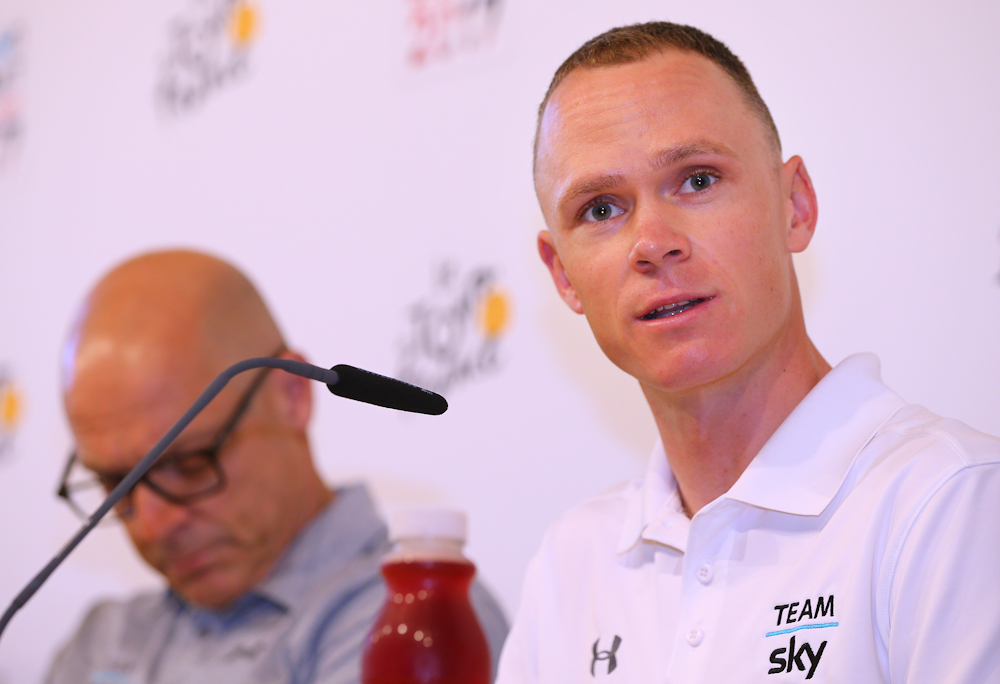
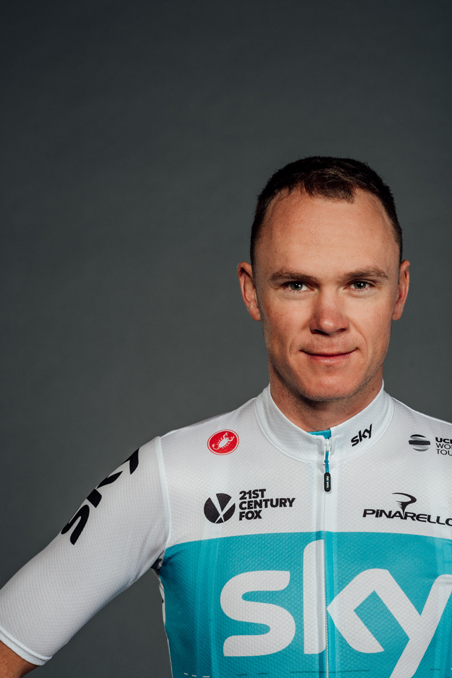
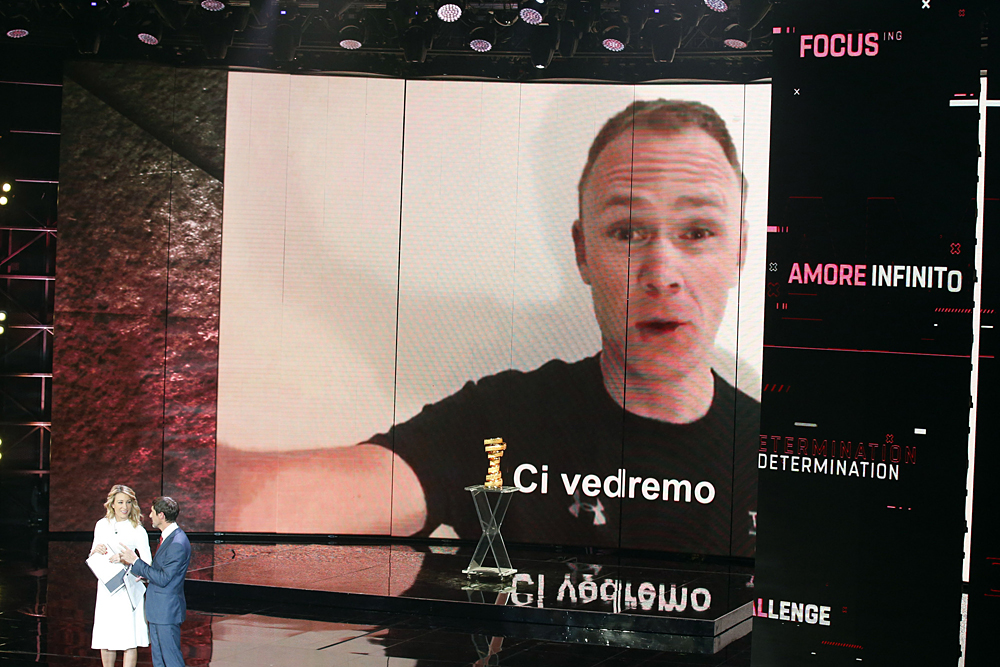
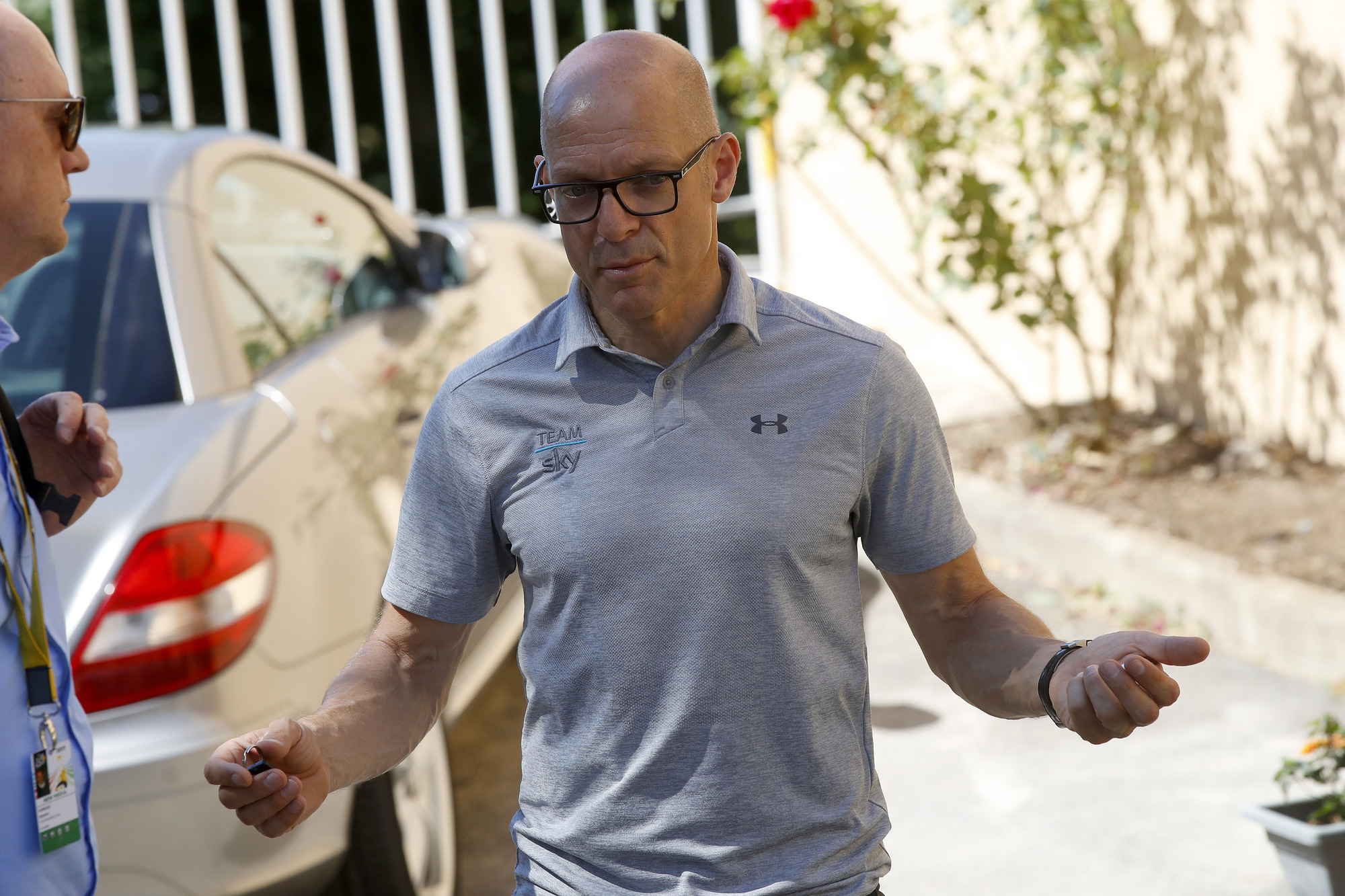
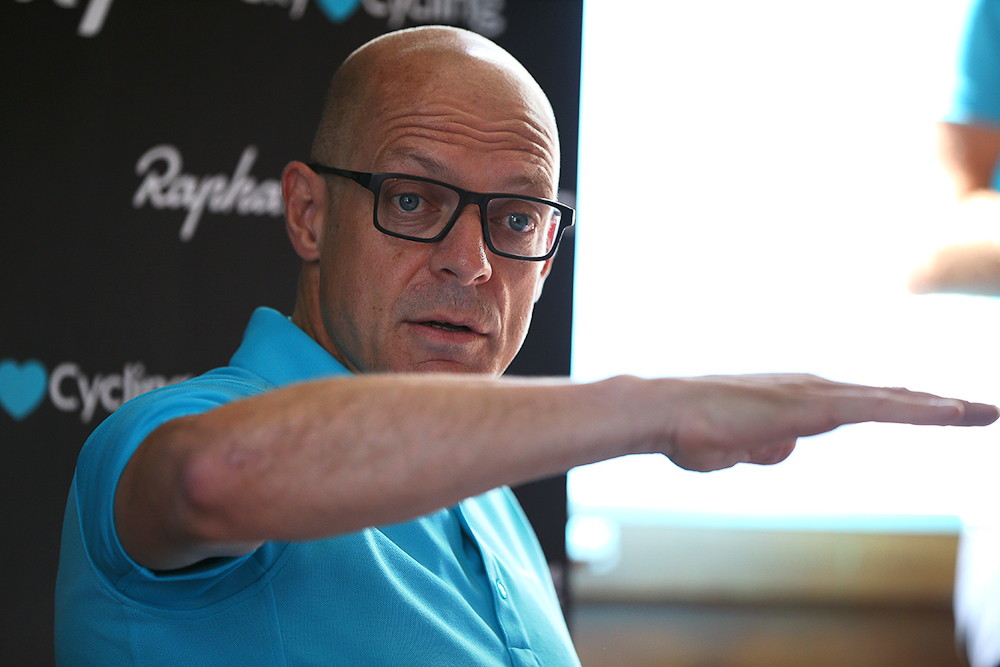
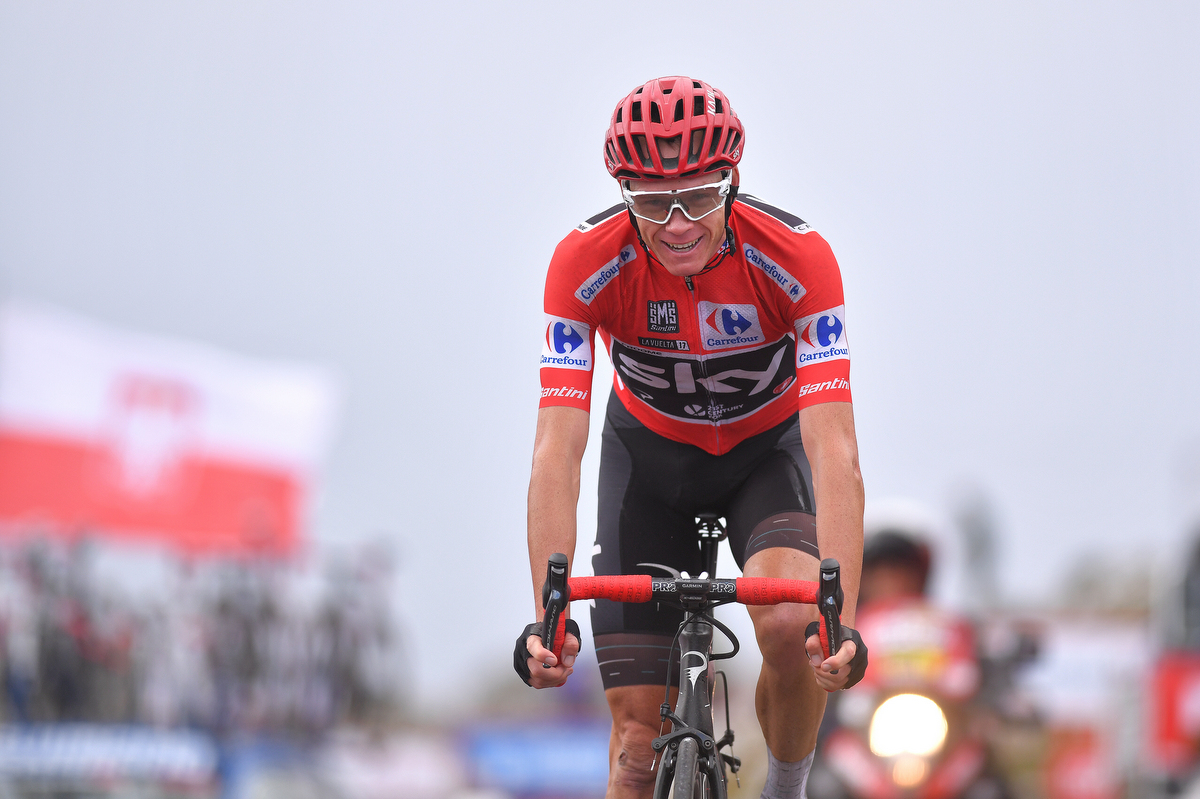
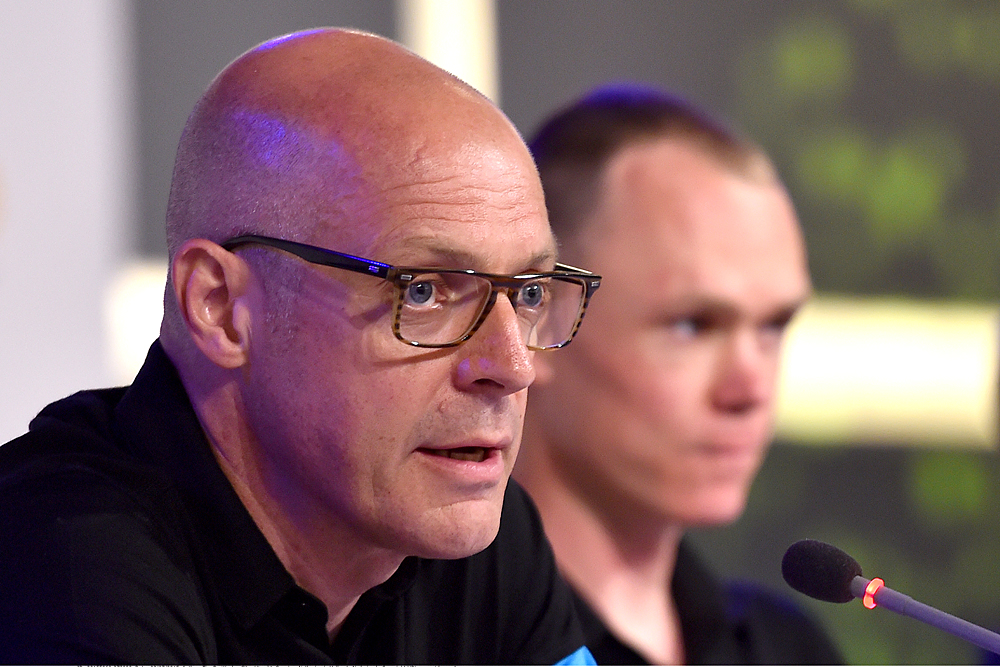
What has drawn my attention throughout the continuing saga of the Chris Froome salbutamol affair isn't necessarily the political-style statements from Dave Brailsford, or the guarded comments from some of the prominent riders who have dared to say something on the matter.
You see, all that hot air from Team Sky has to be expected, and you aren't going to get anything that controversial from a current rider as they'll have been briefed by their press officers to stay well out of it. No, the most surprising thing has been the promotion of the idea that somehow the excess of salbutamol that Froome had on stage 18 of the Vuelta a Espana was Froome's personal doing. It’s been subtle, but it’s been there, if you read the language used by Brailsford and Team Sky.
This is supposed to be the same, all-singing and all-dancing Team Sky with the best people, doing the best job in new-fangled ways that are nothing to do with the scorned ways of the past. It’s a joke. This isn't a Froome-inspired mess that they, Team Sky, are wrapped up in. Oh no, this is a mess wholly orchestrated by themselves, and it just so happens to be with Froome at the centre of it. Not the other way around.
Those same geniuses who run the squad and praise the medical staff for providing the best support when Team Sky win races with Chris Froome are now trying to tell us they had nothing to do with Froome ending up with twice the limit of salbutamol. I don't think that flies, not in the slightest. That's not how it works when you are a team leader, and in the race lead at a major race.
Having been in that position, I can tell you that one bout of the hiccups or a slightly gummed-up ear and there's a panic that you're ill or you've caught something. Ignorance of the team leader’s health just doesn't happen, and the management know about everything that could affect the outcome because quite simply that outcome may decide the survival of the team. So for Team Sky to pretend that they didn't know or weren't informed of the state of Chris Froome's health at every moment during the Vuelta isn't believable at all.
As a comparison, look at how GreenEdge dealt with the Simon Yates episode. They fessed up that it was their fault and accepted the consequences. Now, compare that to how Dave Brailsford has handled the Froome positive and it's night and day. Come on guys, we aren't stupid, the rider has been in your team's care, under your team's supervision and somehow you are surprised. Really?
What I don't understand either is how could they go ahead with the decision to start Froome at the World Championships time trial after being informed of the adverse analytical finding? For an organisation that said it was going to do the right thing, and act in the right way, then surely they should have spoken to Froome and British Cycling and withdrawn him from competition. Then that would not have affected the result or led to a scenario that left them open to criticism since the affair was made public.
It might be their right to keep Froome racing but it isn't the right thing to do. After the Bradley Wiggins Jiffy bag, the tramadol accusations, the dubious use of triamcinolone with TUEs and the ongoing Gianni Moscon case, doing the right thing, you would have thought, ought to be at the forefront of their actions.
Look at the reactions of people watching the saga drag on and you can see not just the damage they're doing to the sport, but to themselves, their riders and their image. Attributing blame to Chris Froome personally is a pretty poor stance to take. It hasn't worked for any of the other situations they've got themselves into, and it isn't going to improve the perception that Team Sky haven't walked the walk that they talked about since their inception.
The change of the jersey from black to white always struck me as clutching at a hint of innocence but they may as well have continued with the Death Star colours and imposing blacked-out windows. And having Froome at the Ruta del Sol is another mistake. Yes, the organiser wants him there, of course he does – there'll be a media circus at the race – but it's short-sighted and for all the wrong reasons.
I do wonder how this is all going to play out. Is any suspension really going to be backdated? That doesn't seem right, as in the meantime, instead of being excluded from the team’s training support and camps, Froome has continued to benefit from that structure. When riders are banned, there's meant to be an element of not participating in team life, so will that continuing support and benefit that Froome has had while waiting for a decision be taken into account? One thing for sure is that Team Sky have generated no goodwill by drawing out the process for as long as it has, and none at all by pointing the blame at their rider.
As for the Sky management's guarded stance I'm reminded of the classic situation when a politician sitting in a cabinet position finds themselves in a spot of bother and the Prime Minister comes out and says: "We fully support our colleague and believe they have done no wrong."
The victim is then gone in less than a week.
Chris Froome hasn't been thrown under the bus just yet. However, if – or when – he is, will it be driven by the doctor who has lost his files, or better yet, will he be spared that scenario? After all, Dave Brailsford seems to have history of forgetting when and where the Team Sky bus is located.
Get The Leadout Newsletter
The latest race content, interviews, features, reviews and expert buying guides, direct to your inbox!
Philippa York is a long-standing Cyclingnews contributor, providing expert racing analysis. As one of the early British racers to take the plunge and relocate to France with the famed ACBB club in the 1980's, she was the inspiration for a generation of racing cyclists – and cycling fans – from the UK.
The Glaswegian gained a contract with Peugeot in 1980, making her Tour de France debut in 1983 and taking a solo win in Bagnères-de-Luchon in the Pyrenees, the mountain range which would prove a happy hunting ground throughout her Tour career.
The following year's race would prove to be one of her finest seasons, becoming the first rider from the UK to win the polka dot jersey at the Tour, whilst also becoming Britain's highest-ever placed GC finisher with 4th spot.
She finished runner-up at the Vuelta a España in 1985 and 1986, to Pedro Delgado and Álvaro Pino respectively, and at the Giro d'Italia in 1987. Stage race victories include the Volta a Catalunya (1985), Tour of Britain (1989) and Critérium du Dauphiné Libéré (1990). York retired from professional cycling as reigning British champion following the collapse of Le Groupement in 1995.
